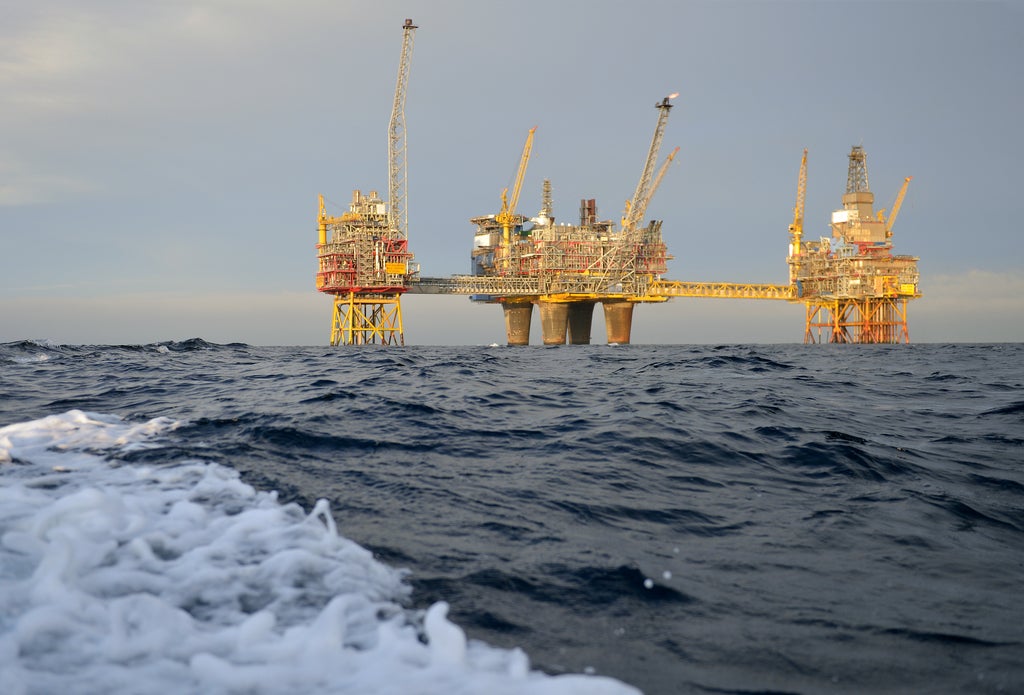
Oil and gas giants Equinor, Shell and Total have made a final investment decision on the Northern Lights carbon capture and storage (CCS) project. The project will capture industrial and imported carbon dioxide (CO₂) emissions to be injected into reserves from a terminal in Øygarden, on Norway’s west coast.
The three companies are making an initial investment of $680m (NOK 6.9bn) between them. Of this, they estimate 57% will go toward Norwegian contractors.

Discover B2B Marketing That Performs
Combine business intelligence and editorial excellence to reach engaged professionals across 36 leading media platforms.
Equinor is operating the project, using its Oseberg A platform for the injection operations. It plans to operate the CO₂ terminal remotely, from the nearby Sture terminal.
Planning the Northern Lights project
The Norwegian government has given backing to the Northern Lights project, to create a full supply chain for CCS.
The project will use captured CO₂ from a waste-to-energy incinerator and cement-making factory. These are jointly known as the Norwegian Full-Scale CCS Project, a related government-backed project.
Captured carbon dioxide will then be injected into the Oseberg field. Platforms on the field currently send oil and condensates from several nearby fields to the Sture terminal.

US Tariffs are shifting - will you react or anticipate?
Don’t let policy changes catch you off guard. Stay proactive with real-time data and expert analysis.
By GlobalDataEquinor carried out pre-front end engineering and design (pre-FEED) work with Gassnova, the state-owned Norwegian CCS company. In Q4 2019, Equinor drilled an exploration well to assess the capacity of the field,
Total, Shell and Equinor previously signed an agreement on how study work for the project would be performed. This agreement also lays foundations for a joint venture agreement between the three.
Equinor is the operator of the project, with Norske Shell and Total E&P Norge as equal partners.
The next steps in constructing the Northern Lights
The first phase of construction will build toward transporting 1.5 million tons of CO₂ per year into the field. Phase two will increase the capacity to 5 million tons if the joint venture partners agree to new investment.
Slightly more than half of the phase one carbon dioxide capacity will be supplied by the Norwegian CCS Full-Scale Project. This means some CO₂ can be supplied by what the project calls ‘European CO₂ sources’, according to the project website.
The Norwegian Ministry of Petroleum and Energy is reviewing the plans for operation and development of the project. If it gives its approval, the companies have said phase one should be operational by 2024.
Executives of the companies back the investment
Equinor executive vice president for technology projects and drilling Anders Opedal said: “The Northern Lights project could become the first step to develop a value chain for carbon capture and storage, which is vital to reach the global climate goals of the Paris Agreement.”
Shell vice president for carbon capture, utilisation and storage Syrie Crouch said: “Shell is active in all parts of the CCS value chain and Northern Lights further strengthens our global CCS portfolio. We appreciate the leadership shown by the Norwegian Government to accelerate the development of CCS value chains and believe that the Northern Lights CO2 transport and storage solution has the potential to unlock investment in capture projects across Europe.”
Total president of gas renewables & power Philippe Sauquet said: “Together with our partners, under the leadership of Norway, we are taking the final investment decision for this first commercial-scale carbon transportation & storage project in Europe, the first of this industrial magnitude for Total. Today more than ever we are willing to increase our efforts on the development of the CCS technology which is essential to reach Europe carbon neutrality and is fully part of Total’s new climate ambition to get to net zero by 2050.”





